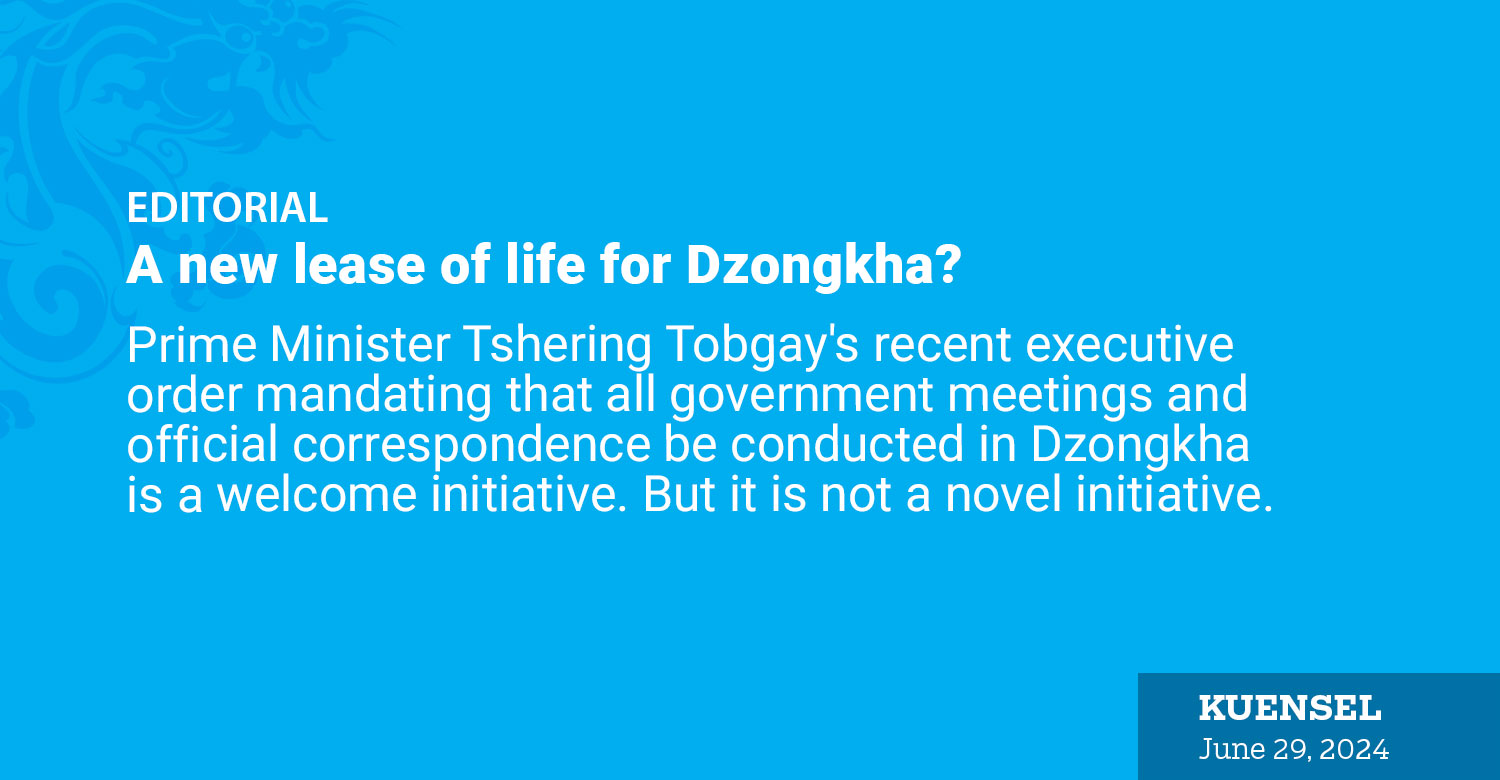Prime Minister Tshering Tobgay’s recent executive order mandating that all government meetings and official correspondence be conducted in Dzongkha is a welcome initiative. But it is not a novel initiative. His Majesty the Fourth Druk Gyalpo had issued several decrees in the past with the same intention — to promote our national language and, by extension, our cultural and national identity. Despite these efforts, the Bhutanese preference for English has persisted, making the implementation of these policies challenging.
The importance of Dzongkha as a cornerstone of our culture and identity cannot be overstated. The new executive order adds fresh impetus to the ongoing efforts to promote and develop Dzongkha. However, we must view this directive within the context of Dzongkha’s reality. How many of Bhutan’s public officials can conduct meetings and correspondence in Dzongkha? The reality is that very few can. Learning Dzongkha overnight is an unrealistic expectation. For technical subjects, the vocabulary in Dzongkha is still limited, often necessitating the use of English terms.
A survey from a few years back found that only 10 percent of the 43 government offices use Dzongkha for official correspondence, which highlights the gap between policy and practice. Most senior officials struggle to speak formal Dzongkha without relying heavily on English words and phrases. This reliance indicates that Dzongkha, in its current state, may not yet be fully equipped to serve as the sole medium of communication in official settings.
Nevertheless, the significance of Dzongkha is undisputed. In light of the executive order, the way forward is to foster a collective effort to learn and use our national language. It is crucial to instill pride and competence in using Dzongkha among the Bhutanese people. This new directive from the Prime Minister is a significant step, reminiscent of the wisdom of the Great Fourth, to revitalise the public service’s commitment to our national language.
The executive order emphasises that the responsibility to promote Dzongkha does not lie solely with a specific agency but calls upon all citizens to champion the national language. It also acknowledges past decrees and resolutions, including the Royal Decree of 1993, which mandated that all government offices draft their plans and policies in Dzongkha. However, the implementation has been lacklustre, with many officials and leaders continuing to prefer English for official matters.
Public feedback underscores the challenges and the need for a consistent approach, starting from schools and moving to various organisations. The importance of promoting Dzongkha as a vital aspect of our culture and national identity is widely recognised. Yet, there is a consensus that practical steps are needed to bridge the gap between policy and practice.
To address these challenges, the prime minister has also recommended the recruitment of interpreters and translators to facilitate communication for foreign participants in meetings conducted in Dzongkha.
Promoting Dzongkha requires a coordinated effort among various stakeholders, including the home and education ministries. There is also a need to create job opportunities that require Dzongkha expertise to encourage students to pursue studies in the language.
While the executive order by the prime minister marks a significant step towards promoting Dzongkha, its success hinges on practical and consistent implementation. The collective effort of all citizens, coupled with targeted policies and support from the government, will be crucial in ensuring that Dzongkha not only survives but thrives as the national language of Bhutan.


